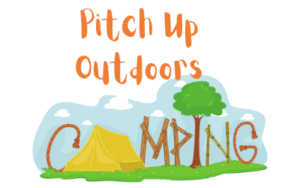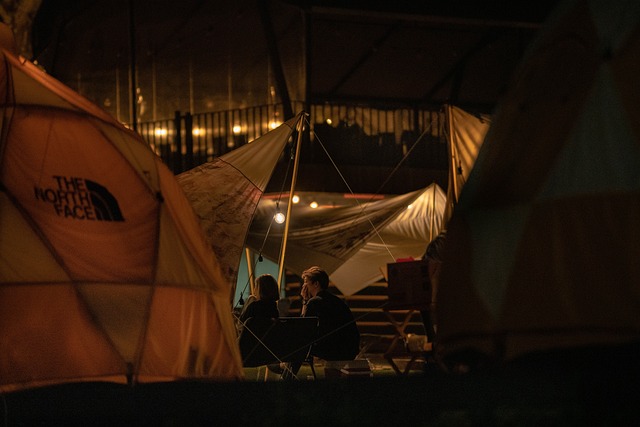This post contains affiliate links.
As you start your camping adventures, it is essential to understand the different rules of camping. The do’s and don’ts of camping will ensure that you have a harmonious and respectful camping experience.
What are the unspoken rules of camping?
- Never walk into another person’s pitch area.
- Respect your neighbour and their privacy.
- Never enter another person’s tent without an invitation.
- Respect your environment – wildlife and surroundings
- Don’t cut down branches for your firepit.
- Leave no trace
- Respect the facilities provided and clean up after yourself.
- Explain to your children the campsite rules.
- Do not light fires near another person’s tent.
- Keep noise to a minimum in the mornings before 8 am.
- Use correct waste disposal
- Usage of generators
Whether you are a seasoned camper or new to the camping scene, join us as we delve into the world of campsite guidelines and embark on a journey of responsible and enjoyable camping.
Why do campsites have rules?
Campsites need rules to ensure that all campers enjoy their holiday, safety rules and create an enjoyable environment for all.
Everybody wants to enjoy their holiday without having it ruined by sometimes minor incidents. However, what you may feel is a fun holiday, maybe another person’s nightmare holiday.
Nobody wants to be kept awake at night by all-night parties, lots of music, loud laughing or shouting, or worried about their safety, especially if you have children. The same as nobody wanting to be woken up early in the morning with kids running around near their tent early hours and waking them up.
It is important to remember that noise carries, and often just speaking around the campfire can disturb other campers near you. No matter how quiet you may think you are.
Safety rules are in place to keep everybody safe. The campsite rule is about using equipment safely and not having fires too close to a tent. Disposal of waste and hot ashes correctly to avoid potential fire hazards.
What are the rules of a campsite?
Standard rules are similar to unspoken rules. However, they are easier to enforce and should always be followed.
They will normally be on your order confirmation if you are unsure of any campsite rules. However, the campsite owner will explain these rules when checking in, and they will be displayed around the site.
Explain to your children that they need to respect others, not run between the tents, be careful around guy lines and above all, not enter other people’s space. We had an instance where a child ran between our windbreaker and the firepit. We fully realised what was happening and managed to stop the child from running into our firepit. Which would have been a very serious accident.
| Campsite rules | What do they mean? |
|---|---|
| Arrival times | Arrival is normally after a set time with a cut-off. If you want to arrive early, contact the campsite as they will accommodate you. Be prepared to pay an additional fee. |
| Departure times | On average, the departure time is between 10 – 11 am. For some campsites, do not worry if you go a bit over on departure time. However, many campsites are strict and want to clear the area for the next person. |
| Quiet time | Quiet time is normally from 9 pm. Quiet times include not loud music, shouting, banking car doors or boots. |
| Dogs must be kept on a lead. | Dogs must always be kept on a lead, even if your dog is obedient and well-behaved. Your dog must not wander into another person’s tent. Must not be aggressive towards other campers of dogs |
| Clear up after your dog | Always pick up your dogs’ poo and deposit it in bins provided Never let your dog wee up another person’s tent |
| Respect other campers | Do not enter another campers pitch area Do not pitch your tent too close to another person’s pitch. Be polite and sociable to others. |
| Transportation | Some campsites do not allow cars on-site and provide a car park for you. Park on your pitch area only. Consider other campers, do not park your vehicle so it obscures their view. Do not speed around the campsite as there are children about. No running vehicles at unreasonable times. Stick to speed limits. |
| Dangerous Dogs Act 1991 | Before booking your site, check if your dog’s breed is classified under the dangerous dog act. There is a setlist of dogs, but not all campsite ban listed dog breeds. However, they will expect you to have full control of your dog. |
| Clear up after yourself | Don’t leave any rubbish around your pitch area. Clear food and empty food storage containers and place them in relevant rubbish bins. If using the showers, wipe down after usage. Leave washing up areas and launderette facility clean. If there are recycling rules follow them. |
| Fire and BBQ | Do not leave a BBQ or a firepit unattended. Consider the 6m distance from the tent or awnings, including other camper’s tents. Some campsites do not allow you to bring your own wood for burning due to fumes. You may need to purchase on-site. Dispose of cold ashes in the correct bins. Do not place hot embers in a bin. Place a fire retardant mat underneath your BBQ or fire pit to protect the ground |
| Guest | The campsite will allow guests during the day. They often have a check-in and a check-out procedure. |
| Waste disposal | Don’t leave any rubbish around your pitch area. Clear food and empty food storage containers and place them in relevant rubbish bins. If using the showers, wipe down after usage. Leave washing up areas and launderette facility clean. If there are recycling rules, follow them. |
| Generators | Not all campsites allow generators. It will be stated in the terms and conditions if you can use a generator. Restrictions on generators normally apply to diesel or petrol generators. Ask if you can use a solar generator onsite. These are quiet and will not break any noise pollution issues on site. |
What can happen if you do not follow campsite rules?
If you do not follow the basic rules of a campsite, you ruin a holiday for another person, but you will be asked to leave the grounds. You will have no option and not only ruin your holiday but no refund will be given as you agreed to the campsite rules.
You agree to abide by their rules when you stay at a campsite. Some campsites will explain the rules and ask you to sign an agreement. Others will email the rules on booking. Upon booking your pitch and paying a deposit, you automatically agree to their rules.
What should I do if another camper is disobeying the rules?
If you have issues with another person on the campsite that may be too noisy, ask them nicely to keep the column down as sound travels. If you approach angry and start to shout, you cannot expect them to be civil to you.
However, if the issue persists and they do not take any notice, you can contact the campsite manager. You should have a contact number for out-of-hours emergencies. If you prefer not to do this during the night, there will be a reception area you can visit for help during the day.
Only report other campers to the campsite manager if it makes your holiday unbearable. People may not realise how far sound travels.
Related questions
Keeping yourself and your family safe camping outdoors
Understanding how to keep yourself and your family safe whilst camping is essential. Allowing you to all enjoy a fun holiday enjoying outdoor experiences and exploring.
- Campfire safety – Keep fires small and manageable. Removing any debris that can cause the fire to spread. If a fire pit has been given, use it and do not move. Either have a fire extinguisher of water close to dose fire if required. Keep the fire away from flammable material such as tents and store flammable liquid safely.
- Planning and preparing – Be aware of local forecasts, ensuring that you have all the required gear. Keep a first-aid kit and emergency contacts for quick access. Be aware of emergency locations near your campsite.
- Pitching your tent – Check the area for potential hazards such as unstable trees or branches. Remove any sharp objects or stones. Check all poles, air tubes and zips for damage.
- Water safety – Never leave children unattended. Do not drink the water; be aware of currents or underwater obstacles.
- Food – Store and handle food correctly. Never eat reheated food, or leave it in direct sunlight. If unsure, throw it away and be extra cautious. Never leave food laying around outside, as this will attract animals.
- Insect protection – Use insect repellant and wear the correct clothing to avoid insect bites. Have anti-itch cream and watch for allergic reactions.
- Wildlife – Never approach wildlife or feed. Animals may seem harmless, but if it is breeding season, they can become aggressive if they feel threatened. Understand the local wildlife, and do not interfere with their natural habitat. Read more on how camping and how you should interact with wildlife to avoid disturbing them and your self-keeping.
Are the rules the same for wild camping?
There is a difference between campsite camping and wild camping. Wild camping is discrete camping.
- Not on private land
- Leave no trace
- No poaching
- Always camp away from public footpaths
- Illegal in Wales and UK but legal in parts of Scotland
- Camp late in the evening and leave early
- No fires
Scotland is legally the best place to camp if you want to start wild camping. However, there are restrictions during the year, and you do need to book your wild camp before visiting. If you want to learn more about the restrictions and where to camp in Scotland, our article explaining the camping byelaws will help you and stop you from breaking the law.


